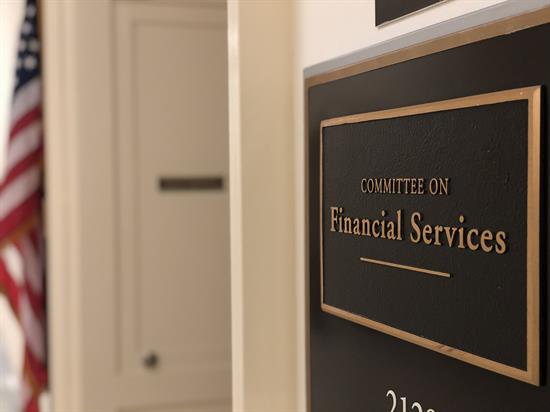Waters, McHenry slam`broken' credit reporting system in face-off with executivesBy: Zachary Warmbrodt, Politico
Washington,
February 26, 2019
Indignation toward the credit reporting industry united the top Democrat and Republican on the House Financial Services Committee Tuesday, with both calling for the shakeup of a business dominated by three giants: Equifax, Experian and TransUnion. Financial Services Chairwoman Maxine Waters (D-Calif.) told executives for the firms at a hearing that they treated consumers like commodities and that the credit reporting system needed to be rebuilt "from the ground." The hearing was a showcase for a sweeping credit reporting overhaul drafted by Waters. "The Fair Credit Reporting Act, the principal statute governing the industry ... was written for another time — a pre-Internet era," McHenry said at the hearing. "There is no better example than the oligopoly that was created than the three that are sitting before us here today." The executives' harsh reception suggested that House Democrats may find some common ground with Republicans in Congress when it comes to revamping the industry's practices. But the hearing also revealed sharp differences with GOP lawmakers who were critical of the Waters proposals and defensive of the industry. Across the Capitol on Tuesday morning, Senate Banking Chairman Mike Crapo(R-Idaho) made clear at another hearing that financial data will be a major focus for him, including a review of the Fair Credit Reporting Act. It's unclear what direction he will take. While the industry plays a huge role in helping lenders quickly gauge the creditworthiness of potential borrowers, Waters is concerned that consumers are suffering in a system in which they have little recourse to fight back. The nearly 200-page credit reporting bill that the Los Angeles Democrat has drafted would give individuals more power to dispute errant information on credit reports that the three companies collect and supply to financial institutions. It would introduce new restrictions on how negative credit data can be used against consumers, including as part of hiring decisions. "If a consumer is dissatisfied with one credit bureau, they can’t take their business to a competitor," Waters said. "To credit reporting bureaus, consumers aren’t consumers. They are commodities." Equifax CEO Mark Begor said the company was taking steps and investing millions to become a "more consumer-focused" company. "Let me be clear: A single error on a consumer's credit report is one error too many," he said. "I understand how frustrating it can be for a consumer to feel helpless when dealing with a credit bureau like Equifax." Even some of the committee's most business-friendly members, who have tried to be sympathetic to the industry, questioned its practices. Rep. David Scott, a Democrat representing a district in Equifax's home state of Georgia, commended Begor for serving as a "new sheriff in town" following the company's massive 2017 data breach, which exposed the personal information of 148 million consumers. Then Scott pressed him on consumer complaints about inaccurate data. "So I want to tell you, job well done there," Scott said of his response to the breach, "But we've got a bigger issue here." McHenry asked the executives how an "oligopoly" protects consumers, prompting awkward silence from the witnesses. "OK, I'll take that as an answer," he said. But even as McHenry took the executives to task, it became clear that Republicans would resist the legislation Waters proposed. Several other GOP members came to the firms' defense during the hearing and pushed back on the Waters bill. The GOP questions suggested that industry lobbyists were gaining traction with one of their main criticisms of the Waters bill, which is that it could cause problems for lenders that would be left with incomplete data on prospective borrowers. Rep. Roger Williams, a Republican car dealer from Texas, said at the House hearing that he was worried the committee would create a scenario in which lenders would receive "credit reports that have been scrubbed of all negative credit information." "The danger is, if you remove something without thinking through negative implications, you could increase the cost of credit for everybody," TransUnion President and CEO James Peck said in response. "Because ultimately if people don't pay back their loans, the cost of credit goes up." In an interview following the hearing, McHenry said there was a distinction between "dispute resolution" and "disputing facts." "If Chairwoman Waters is interested in bipartisan reforms, I'm game," he said. But her existing bill "shouldn't be the starting point for our discussion. We should actually start at building consensus." For Waters, the hearing justified taking a bold approach. "After hearing the testimony from the CEOs before us today, I am more concerned than ever about the state of our consumer credit reporting system," she said. "I'm troubled to the point where I do think that we need to start thinking about how we reimagine it and rebuild it from the ground." |


